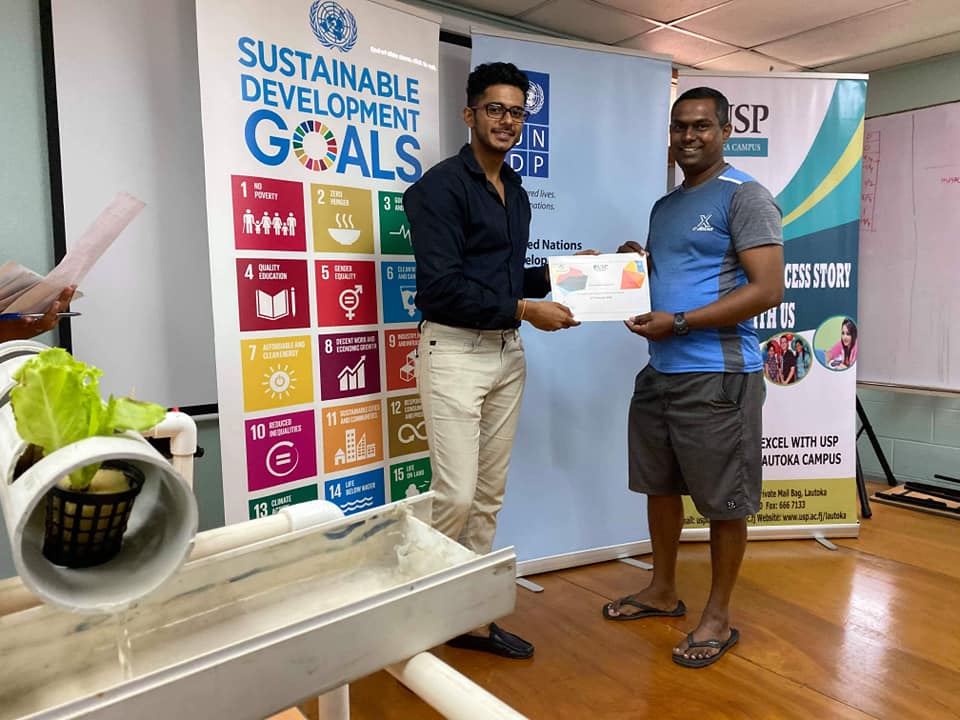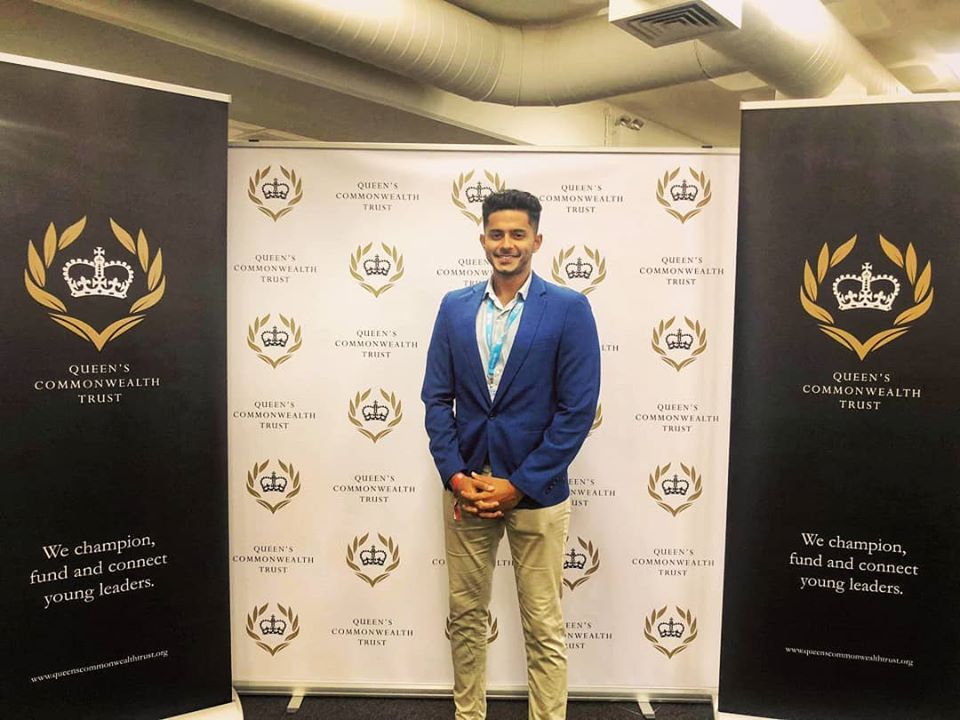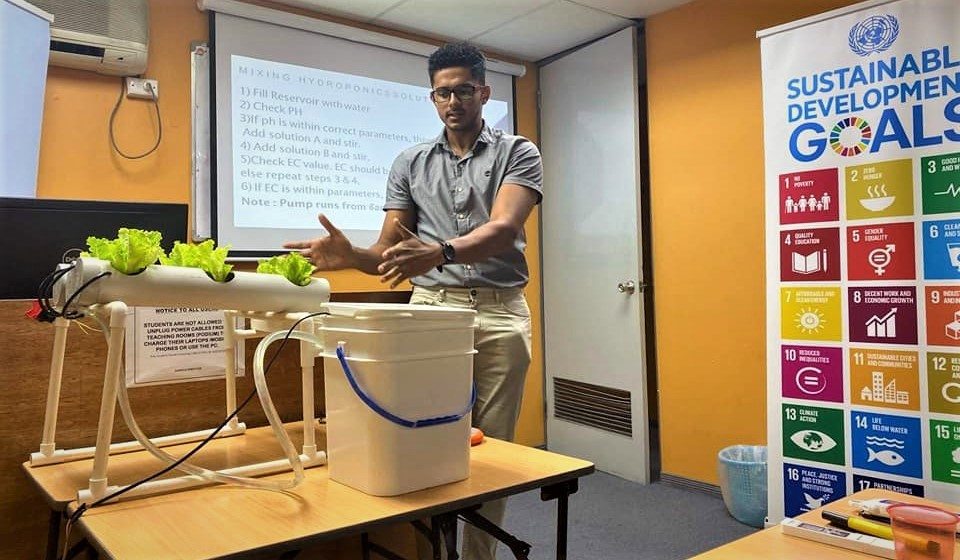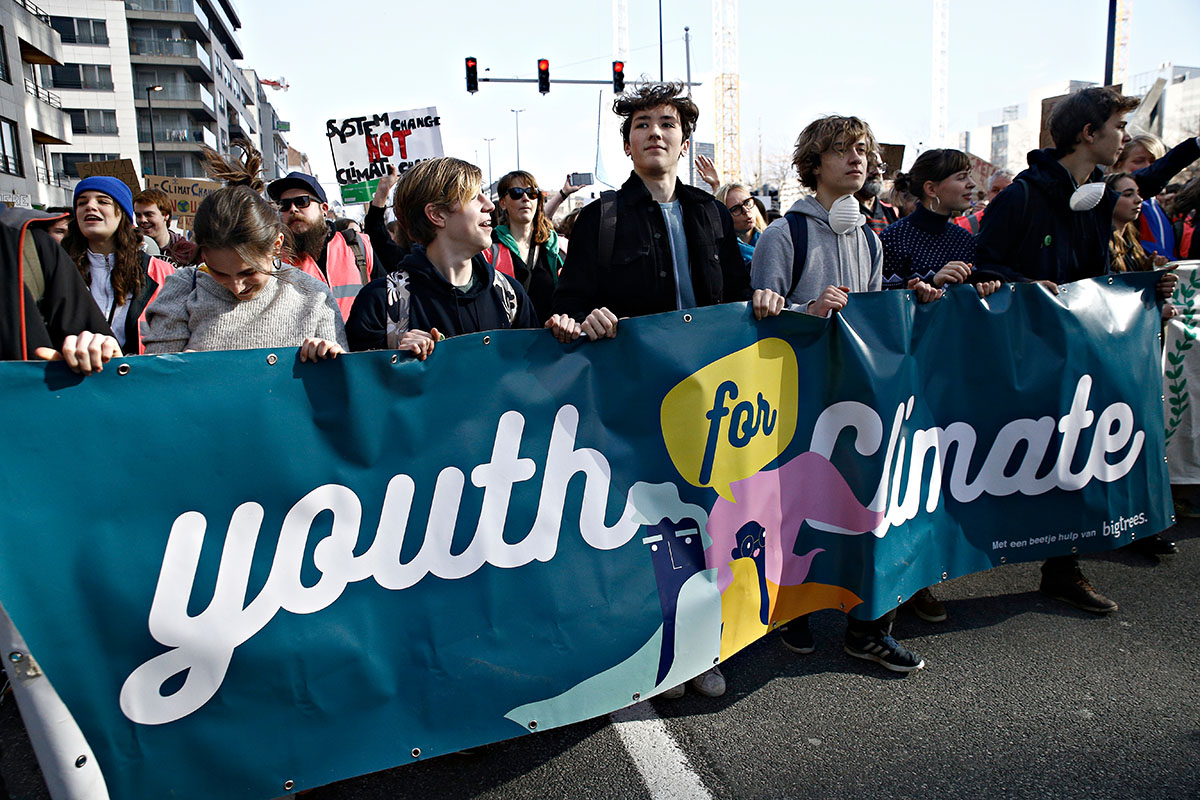Farming smart in Fiji
April 20
Rinesh Sharma is turning obstacles into opportunities by farming in under-utilised spaces around Lautoka City in Fiji. One of the 16 finalists of this year’s Commonwealth Youth Awards, Rinesh is the founder of Smart Farms Fiji, an initiative that aims to provide a sustainable food production system by growing fruits and vegetables in a controlled environment all year round. Metolo Foyet, a 23-year-old Commonwealth Correspondent from Cotonou, Benin, talked to Rinesh about his exciting agro-technology venture.
Congratulations on being one of this year’s Commonwealth Youth Award finalists! How do you feel about this achievement?
I feel honoured and humbled to receive this award. It’s an affirmation of my tireless effort to inspire and empower a generation of women and youths in Fiji to embrace sustainable and responsible farming techniques. I accept this award with profound gratitude on behalf of every Fijian citizen.
How did you come up with the concept for Smart Farms Fiji?
Growing up in a typical Fijian family, vegetables were not common in our weekly grocery box as my parents could not regularly afford them. It was a similar case for my friends and relatives. We’ve grown up without proper nutrition, and the prevalence of non-communicable diseases in Fiji is a testament to that.
Agriculture in Fiji is largely commercial, yet it does not meet domestic consumption needs. A reported $120 million is spent on the import of produce. Moreover, the existing agricultural methods rely on pesticides, which have detrimental effects on human health and the environment.
Smart Farms Fiji addresses the challenges posed by the lack of access to fresh quality produce and environmental degradation caused by current farming methods, particularly in the Pacific Islands.
I live in Lautoka City, and have witnessed the city’s increasing levels of pollution. Upon returning to Fiji after my studies in engineering abroad, I felt that it was my responsibility to utilise my knowledge and skills to develop solutions for my community’s challenges.

Tell us more about Smart Farms Fiji.
We embrace the permaculture philosophy of ‘the problem is the solution’. Every day, we work on improving our technology to modernise farming, reduce the carbon footprint and bring transparency to the food industry in Fiji.
By localising our food system in cities, we have reduced the distance food travels from our farm to the consumer, reducing carbon emissions. Having a food source closer to home allows food to be consumed sooner after harvest. Fewer days between harvest and consumption means the produce is more nutritious and tastes better.
The food grown by Smart Farms Fiji is not limited to common vegetables. It currently extends to different varieties of tomatoes, peppers and chilies.
In addition to urban farming, Smart Farms Fiji conducts courses and workshops in collaboration with the United Nations Development Programme (UNDP) at various universities and schools. We have divided these participants into clusters where we can work more cohesively together in our community, enabling us to collectively deliver greater benefits to all Fijians.

What is the impact of Smart Farms Fiji on the climate as well as the health and well-being of others?
The project benefits both the people of Fiji and the surrounding environment. Poor health and health systems undermine development as they represent a considerable cost to national economies.
The chemical residue from farming with pesticides is found in a variety of everyday foods and beverages, and their effects can be devastating for our health and natural systems.
Our hydroponic farms ensure access to organic, locally-grown produce all year round that is fresh and affordable. Moreover, toxic pesticide run-off harms the marine life surrounding Fiji. The impact of our project will be important for coastal families who rely on the ocean ecosystem for feeding their families and generating income. With our farming system, we can conserve marine life by ensuring that there is zero pesticide usage and nutrient run-off.
What are some of the biggest challenges Smart Farms Fiji has faced and how were you able to overcome them?
The need for a large volume of production and sales to reach profitability is a barrier to sustain ourselves within the market. Capital is required to increase the volume of production and create a wider impact.
As development grows, the land becomes increasingly expensive and we may be pushed even further away from urban centres. Land zoned for agriculture is commonly sold in large lots far from urban centres, which caters to the needs of large-scale corporate agriculture. Zoning is the biggest barrier, together with special-use permits, which are costly.
In addition, another barrier is access to unused space in the cities. Leased lands are subject to changes made by the landowner, which may be abrupt and costly for us.
After completing my scholarship, Fiji’s government gave me a $15,000 grant through the Ministry of Industry, Trade and Tourism’s YES Entrepreneurship Scheme to scale up my project into a commercial farm.
YES provides immediate assistance in the form of grants to young and budding entrepreneurs who have innovative and bankable ideas or projects which financial institutions are not willing to support due to lack of collateral. They also provide business training and mentorship.
Innovation is central to entrepreneurship and key to business sustainability. How has your business been innovative and how has this contributed to your success?
This project is different from existing solutions as it combines next-generation technology with local cultural knowledge.
Our automated system, named “Smart Gro Box” is built from scratch in the Fiji Islands utilising raw materials and labour, respecting and preserving our Fijian culture and authenticity.
Our modular infrastructure is durable and easy to maintain for the community. We also utilise abundant local resources such as raw coconut husks, which are broken down into coir and polished into pots to use as a medium for growing our plants. Through this, we are able to minimise carbon emissions that are generated through traditional storage and logistics management.
The Smart Farm system’s produce is monitored through smartphone technology and saves up to 70 per cent more water than traditional farming methods.
The small islands of the Pacific suffer from energy poverty. Our electricity-free production system has the potential to be distributed and utilised in areas that lack access to energy. All in all, we grow food sustainably with a direct link to consumers through methods that have yet to be seen in Fiji and the Pacific Islands.

This seems like a lot of work—do you have a team?
So far, I am the only one managing my company. When it comes to automated farming, technology does 80 per cent of the work. I visit the farm once or twice in a week but have outsourced work or even hired people part-time in the past. Credit goes to my business circle and network of friends in Fiji who help me out with marketing, pricing, product developments and more. My parents also support me in harvesting or delivering the goods. I look forward to hiring the right people permanently, but currently everything’s manageable.
Many young people look for employment after their education. What gave you the courage to launch Smart Farms Fiji?
I grew up in a business environment where my dad was the manager of a hardware company. Since childhood, I had a fair idea of products, sales, and customers. I always saw that my father worked really hard—but for someone else. I wanted to work with the same honesty and integrity but for myself. My inspiration is and will always be my dad, for what I am today in Fiji.
If you had one piece of advice for young people, what would it be?
Be ready to fail when you embark on the journey of entrepreneurship. You will find obstacles and unprecedented setbacks. But these setbacks are an imperative learning experience. You either win or learn.
Rinesh was recognised for his contribution towards achieving Sustainable Development Goals 2 (SDG 2) – Zero Hunger.
………………………………………………………………………………………………………………………………………………………
About me: I have a keen interest in using research and policy to spur innovative solutions to the environmental and social problems we face. Academically and professionally, my focus has been on Politics, International Relations, Security and Environmental Studies. I strongly believe Africa’s ills are linked to poor resource governance and that the sustainable management of the continent’s human, natural and capital resources will solve many of our problems.
………………………………………………………………………………………………………………………………………………………
The Commonwealth Youth Awards for Excellence in Development Work highlight the contributions of young people who are making a difference in their communities and celebrate their contributions to the Sustainable Development Goals (SDGs).
……………………………………………………………………………………………………………………………………………………………
Opinions expressed in this article are those of the author and do not necessarily represent the views of the Commonwealth Youth Programme. Articles are published in a spirit of dialogue, respect and understanding. If you disagree, why not submit a response?
To learn more about becoming a Commonwealth Correspondent please visit: http://www.yourcommonwealth.org/submit-articles/commonwealthcorrespondents/
……………………………………………………………………………………………………………………………………………………………




